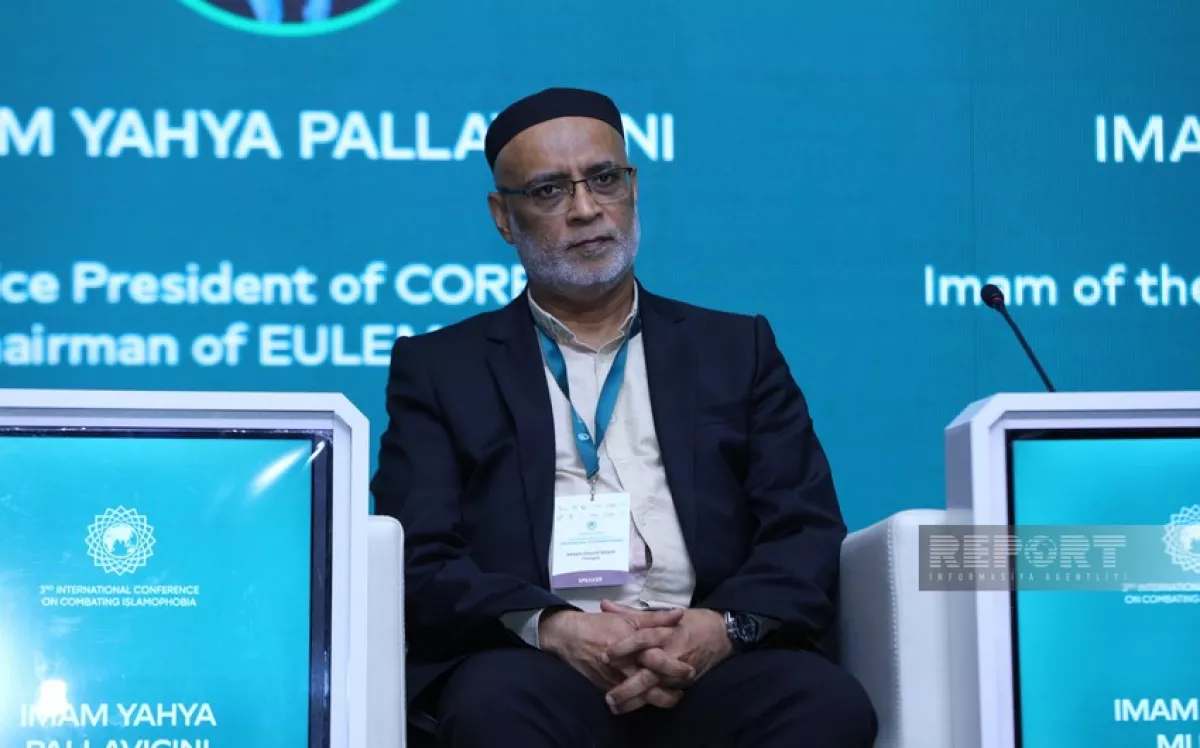Expert: French government’s policies strain lives of Muslim communities
Director of the master’s programme at Emerson College’s School of Marketing and Communication Carol Ann Ferrara has said that certain policies enacted by the current French government have made life more difficult for the country’s significant Muslim population.
She made these remarks during a panel titled “Youth Call for Inclusion: Combating Bias and Misconceptions” at the international conference “Islamophobia in Focus: Unveiling Bias, Shattering Stigmas”, Caliber.Az reports via local media.
She noted that under the banner of “Republican principles,” state support for Muslim schools has been cut, and these educational institutions weakened, posing a threat to the concept of an equal society.
Ferrara said that these measures serve political agendas by portraying diversity as a threat rather than a strength.
She emphasised that open and systemic forms of Islamophobia persist in many countries, making it not only a problem for Muslims but also a test of modern societies’ commitment to justice.
“That is why we, as educational institutions, must assume greater responsibility. Education, fostering empathy, and respecting differences are our primary duties. Giving students the opportunity to tell their own stories rather than just transmitting knowledge is the beginning of real change,” Ferrara stressed.
She also praised the Azerbaijani government for organising discussions on Islamophobia, underscoring the importance of addressing this issue in Western societies.

In a related statement at the same conference, Sheikh David Munir, imam of the Central Mosque of Lisbon expressed gratitude to the Azerbaijani government for organising such important events.
“These gatherings are crucial for discussing Islamophobia in the West,” he noted.
“Until 2019, I proudly said that there was no Islamophobia in my country. Then a new right-wing party emerged, whose members tend toward religious and ethnic discrimination. We are Muslims, but our national identity is Portuguese. Our spiritual and religious identity is Islam. If I lived in an Islamic country, I probably wouldn’t face Islamophobia. However, today, Islamophobia is present in Europe,” Munir added.
A two-day international conference themed “Islamophobia in Focus: Unveiling Bias, Shattering Stigmas” kicked off in Baku on May 26. Marking the 3rd anniversary of the International Day to Combat Islamophobia, the event is co-organised by the Baku International Multiculturalism Centre, the Centre of Analysis of International Relations, and the Baku Initiative Group.
Among the conference’s international partners are the G20 Interfaith Forum (IF20), the Organization of Islamic Cooperation (OIC), the Islamic World Educational, Scientific and Cultural Organization (ICESCO), the Doha International Center for Interfaith Dialogue (DICID), the Higher Committee of Human Fraternity (HCF), the Council of Muslim Elders, the Central Council of Muslims of Germany, the European Muslim Leaders’ Assembly (EULEMA), and the International Muslim Forum.
The main aim of the event is to establish an academic platform for discussing the growing global and national trends targeting Muslims and Muslim-majority countries. Scholars from nearly 40 countries, experts from international organizations, religious leaders, and representatives of non-governmental organisations are participating in the conference.
The conference is featuring discussions on the Global Trends in Islamophobia: Challenges and Responses, Anti-Muslim Hatred in Politics: Legal Frameworks and Advocacy Strategies, Islamophobia in Different Contexts: Regional Perspectives, Islamophobia in Media and Digital Platforms: How Artificial Intelligence Systems Can Spread and Reinforce Islamophobic Bias, Women, Identity and Stereotypes: Navigating the Intersection of Religious and Cultural Prejudices, Institutionalization of Anti-Muslim Legislation in Europe: Rhetoric in the Context of Radicalization of Islamophobic Propaganda, Preserving Islamic Cultural Heritage in a Changing World and Youth Call for Inclusion: Combating Bias and Misconceptions.
By Naila Huseynova








